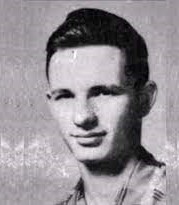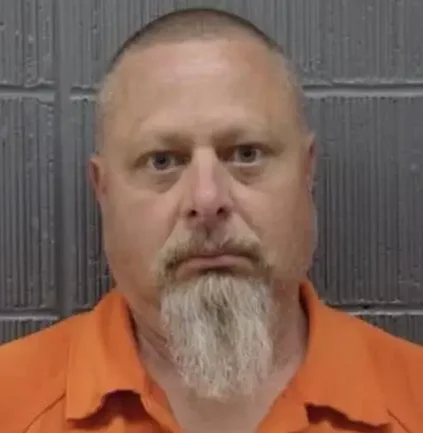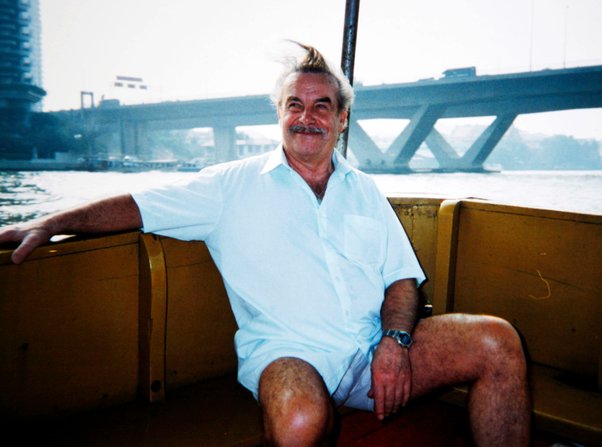
On April 27, 2008, Vienna, Austria, the world learned the gruesome details of what Josef Fritzl did to his daughter. The story sent shock waves around the world. News report gave details of a quite unimaginable story.
For 24 years Josef Fritzl had kept his own daughter captive in a cellar beneath his house. In that time, he’d used her as a sex slave and fathered seven children. By the age of 42 Elisabeth Fritzl had spent over half of her life living in captivity without sunlight and in cramped conditions, controlled by her father.
People in Austria and in the whole world was flabbergasted. People were shocked.
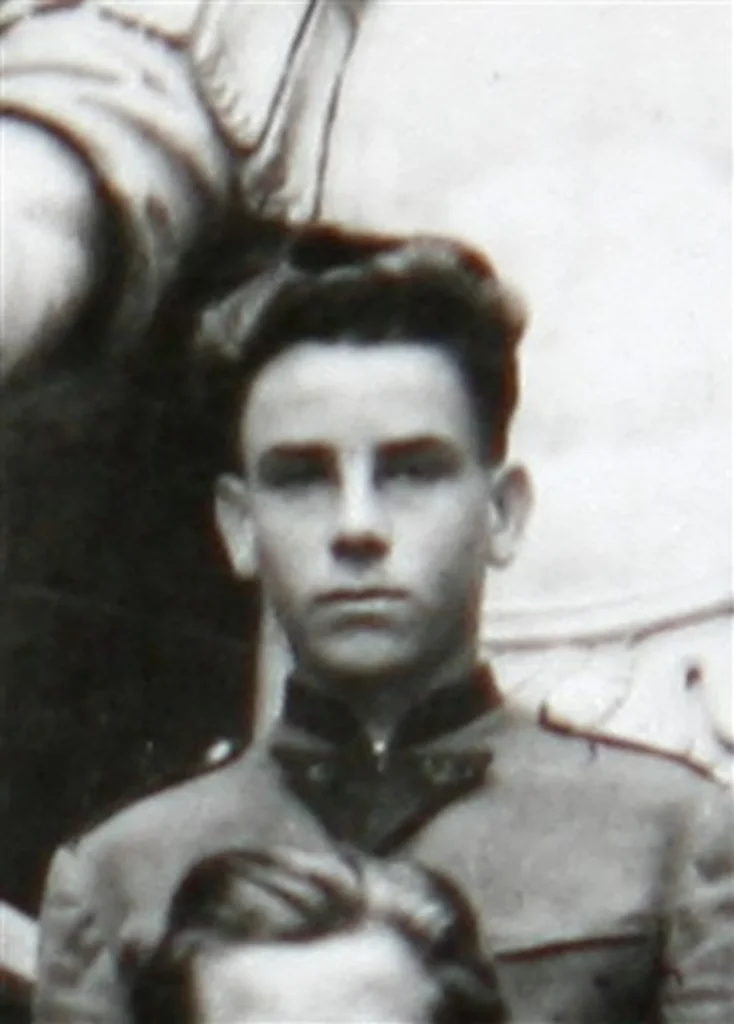
Josef Fritzl was born in Amstetten, Austria, on the 9th of April, 1935. Joseph Fritzl’s childhood was dominated by his mother and his grandmother. His grandmother, Anna, was born in Amstetten, but married a mill owner. They were in loveless marriage, in part because she couldn’t have children. The mill owner had children with different servants, working in his household. One of the children was Maria, Josef Fritzl’s mother. His mother met a very poor man and became pregnant. The baby boy was named Jozef and given his grandmother, Anna’s, maiden name Fritzl, ignoring his grandfather and father’s involvement. On March, 12, 1938, when Josef Fritzl was nearly three years old, Hitler’s troops marched across the border into Amstetten. Within the local community, a child born out of wedlock was stigmatized. His mother, Maria, was arrested and interned to a concentration camp where she spent a few months. 9-year-old Josef Fritzl was sent to an orphanage during this period and told that his mother was dead, only as the war ended did he realize she was still alive. Young Josef’s father had joined the Nazi Army and fought on the Eastern Front, until he was taken prisoner by the Soviets. He was released in 1948 and returned to Amstetten where he was shunned by both the boy and his mother. After the war Fritzl’s mother became even more aggressive. Fritzl’s mother was not a loving mother. She didn’t have parental responsibility. The relationship changed when Fritzl turned 15. He stood against her attacks. Fritzl’s behavior also changed. Difficult psychosexual behaviors emerging around the time that Fritzl was going to stand up to his mother. He became a peeping Tom. He was listening out for young couples having sex in their homes. He started exposing himself to women.
In 1951, at the age of 16, Fritzl left his home in Amstetten and came to Linz, Austria. Josef Fritzl became an engineer. In 1956, he met his wife, Rosemarie, 17. Her father was a colleague of his. Josef Fritzl told friends that she would be a good housewife because she was obedient. In 1963, after seven years of marriage, Fritzl and Rosemary had three children, two daughters and a son. Engineers were in constant demand in the post war years, so he was becoming more and more successful. He was sent by his employers to Ghana. He didn’t return until 1965. He was violent with his children.
Rosemarie fell pregnant again and gave birth to their fourth child on April 8, 1966, Elisabeth Fritzl. She was born in increasing volatile household.
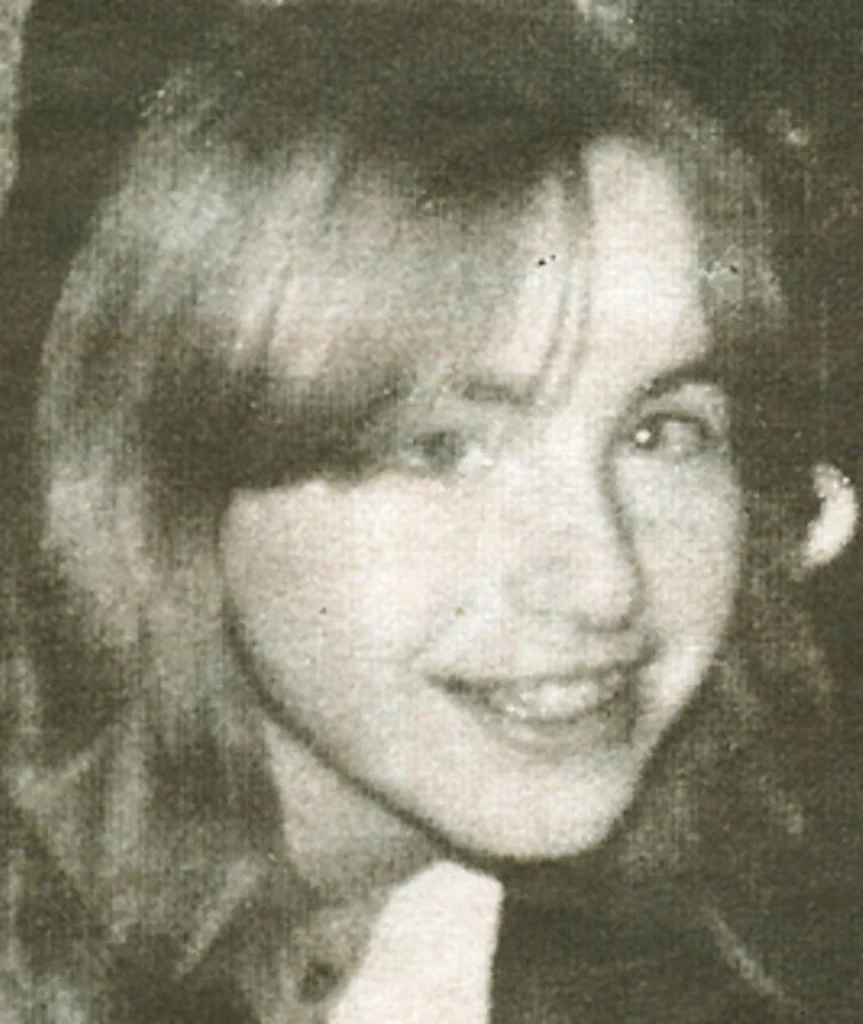
Josef Fritzl was back in Linz, working as an engineer. He enjoyed coming to bigger, industrial city because he could indulge in his sexual interests. He visited Red light area. In 1967, he was convicted of a rape. He followed a young mother home to her house. After she had fallen asleep, he broke into her house and, at knife point, raped her in her bed as her child was sleeping beside her in a cot. He received 18 months for the rape of this young mother, but under Austrian law the sentence doesn’t stay on the record forever. After 15 years, any offenders record as white clean and therefore, as far as the state is concerned, after 15 years that rape never took place. His wife, Rosemarie, didn’t have problem with that. She was visiting him in the prison and she never mentioned the fact that her husband had been convicted of rape.
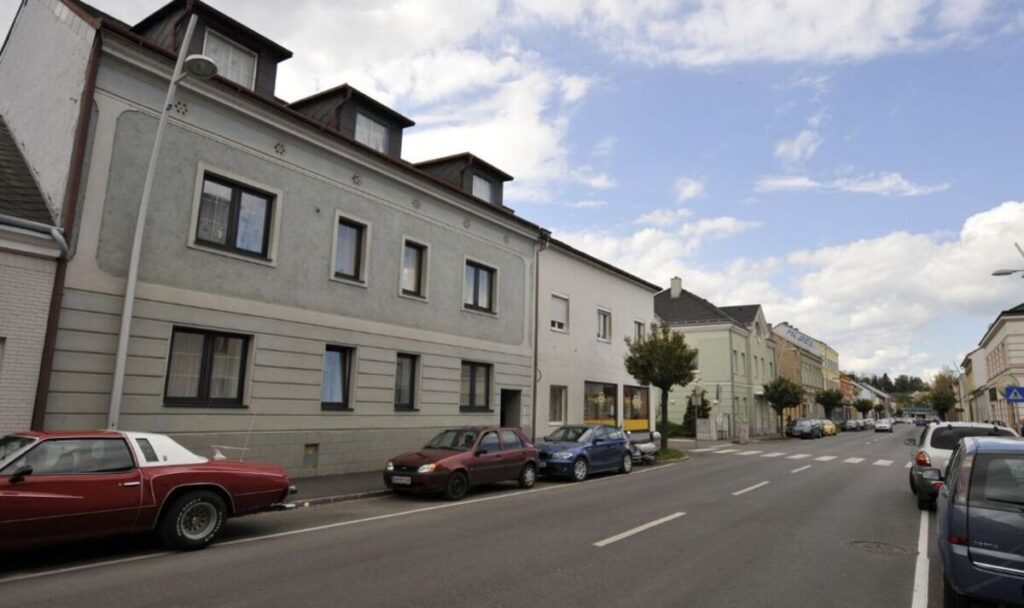
By the end of 1972, the Fritzl family had grown. There were now seven children, four girls and three boys. Fritzl’s reputation as an engineer was also growing. In 1973 Fritzl was a wealthy member of the Amstetten community.
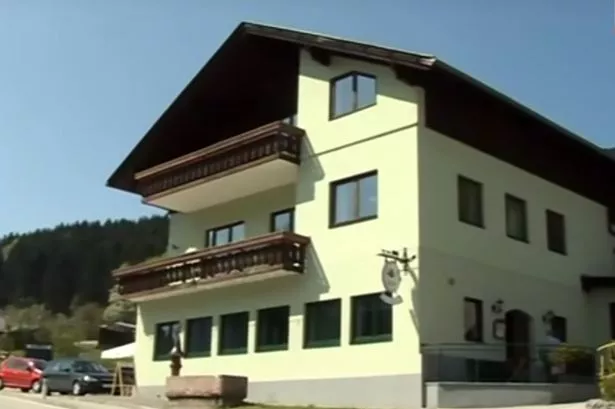
It was a three-story hotel with 40 bedrooms which included a restaurant and a camping place. When he had financial trouble, the property burned down and authorities suspected it was insurance fraud, but never managed to prove anything. In 1978 Josef Fritzl decided to expand the family home.
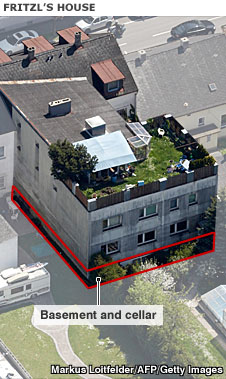
People couldn’t see that anything was wrong, because he presented to outside world the perfect facade.
Josef Fritzl spied on his daughter Elisabeth Fritzl, who was 11 years old. He controlled her.
In September 1981, Elisabeth started a Tourism and Gastronomy course. She also worked in a petrol station restaurant to support herself. Josef Fritzl was exposing himself to her, leaving pornographic magazines under her pillow and was beginning to sexually abuse her.
On January 28, 1983, Elisabeth ran away from home. She was still underage. The police found her and called her father and they drove all the way back from Vienna to Amstetten. He promised her that he would never let her run away again.
By the summer of 1983 the cellar was completed. It had lighting with many interconnecting rooms. It should’ve been used for storage and as a workshop.
In May 1984, Elisabeth Fritzl announced she was going to move in with her sister in nearby Linz. On August 28, 1984, Joseph Fritzl lured 18-year-old Elisabeth into the cellar of the house, drugging and handcuffing her, before incarcerating his own daughter. He dragged her into the hidden space. The authorities didn’t know for that space. There was a bed, television and a video. He chained her within that space. Fritzl forced her to right a letter, saying that she ran away and joined a cult. Fritzl then drove 100 miles out of town to post the letter.
The police were looking for her. Newspaper posted her picture. They thought it was a crime, but didn’t know what happened to her. Never suspected her family or her father. Josef Fritzl told them that his daughter was a runaway, that they had an anonymous phone call. In a meantime, he kept his daughter in cellar, beat her, tortured her and raped her. She was on a dog’s leash.
When Elisabeth became pregnant, her father gave a book on childbirth, a pair of scissors and a couple of nappies. She delivered her child in a dark, humid, dirty dungeon by herself, alone.
The first child was born in 1988 and the baby girl was called Kirsten. In 1990 a second child Stefan was born. By 1991 Elisabeth had been incarcerated in the cellar for almost seven years. She was pregnant with a third child. Meanwhile, upstairs her mother brothers and sisters lived on. In August 1992 Elisabeth third child, Lisa, was born. She had a heart defect. She was in pain and constantly crying. Fritzl decided to put Lisa on their doorstep with a note, Elisabeth had been forced to write. She asked her parents to look after the little girl. Baby Lisa had emergency surgery to correct the heart defect and began life with her grandparents Rosemary and Josef.
Fritzl began to normalize downstairs life, so he moved in refrigerators, things the children downstairs could play with. They had a goldfish and a canary.
On 16 December, 1994, a second child arrived on the doorstep and another note was found from Elisabeth, saying the baby was called Monica.
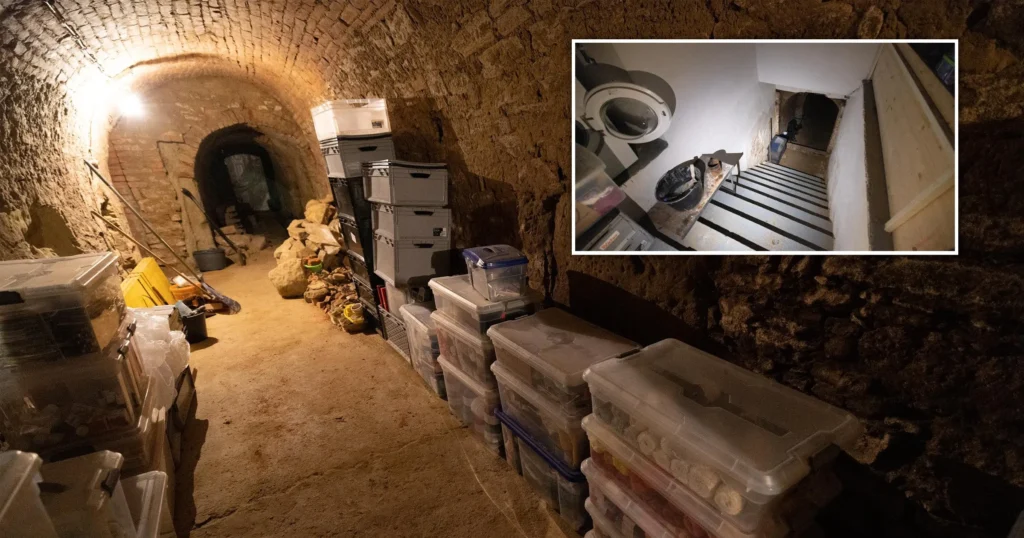
Following the fourth child’s birth in 1994, Fritzl allowed the enlargement of the chamber, from 35 to 55 m2 (380 to 590 sq ft), putting Elisabeth and her children to work digging out soil with their bare hands for years. The concealed cellar had a 5 m-long (16 ft) corridor, a storage area and three small open cells, connected by narrow passageways, and a basic cooking area and bathroom facilities, followed by two sleeping areas, which were equipped with two beds each. It covered an area of approximately 55 m2 (590 sq ft). The cell had two access points: a hinged door that weighed 500 kg (1,100 lb), which is thought to have become unusable over the years because of its weight, and a metal door, reinforced with concrete and on steel rails that weighed 300 kg (660 lb), and measured 1 m (3.3 ft) high and 60 cm (2.0 ft) wide. It was located behind a shelf in Fritzl’s basement workshop, protected by an electronic code entered using a remote control unit. In order to reach this door, five locking basement rooms had to be crossed. To get to the area where Elisabeth and her children were held, eight doors in total needed to be unlocked, of which two doors were additionally secured by electronic locking devices.
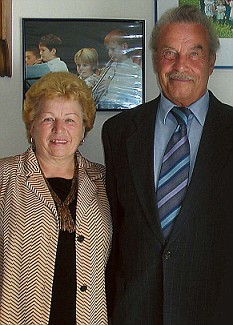
Lisa and Monica were adopted by their grandparents.
Fritzl pretended to worry about her daughter. He told that she was probably in a Satanic cult. Everybody believed him felt sorry for him. They even called her a terrible mother.
On April 28, 1996, Elisabeth Fritzl gave birth to twins Michael and Alexander. Michael was very sick. He had breathing difficulties. Fritzl allowed the boy to die. He burned him in the furnace of the house. Alexander was left on the doorsteps like previous children, with a note.
The house was in a very busy street.
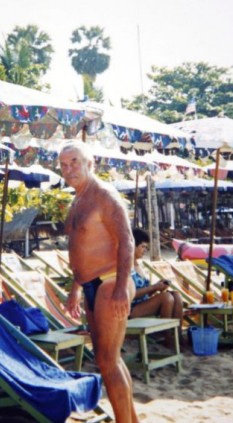
When Fritzl was on work trips or on holidays, Elisabeth and children were alone in the cellar for a few weeks. They had enough food and water to survive. In the case of fire or anything urgent, they didn’t have a way out. Elisabeth taught the children to read and write.
By December 2002, Elisabeth Fritzl had been incarcerated for 18 years in the cellar. 14-year-old Kirsten and 12-year-old Stefan had never been outside the cellar they’d never seen the sun.
Elisabeth gave birth to a final child, a boy called Felix. For some reason, he was fond of Felix. He even wanted Felix to inherit him. He was considering to integrate them with his “upstairs” family, because he wanted Felix to go to school. At times, Fritzl would punish the family by shutting off their lights or refusing to deliver food for days at a time. He told Elisabeth and the three children who remained, Kerstin, Stefan and Felix, that they would be gassed if they tried to escape. Investigators concluded that this was an empty threat to frighten the victims; there was no gas supply to the basement. Fritzl also told them that they would be electrocuted if they tried to meddle with the cellar door.
He allegedly started to make plans to free Elisabeth at the end of 2008, but in the middle of March that year, 19-year-old Kirsten became seriously ill. Elisabeth managed to convince him to take her into the hospital. On April 19, 2008, Elisabeth helped her father carry Kirsten upstairs, before returning to join Stefan and Felix. The doctor at the hospital needed more medical information, but without the mother no one could answer his questions, so a television appeal went out looking for Elisabeth. She saw everything on television.
On Saturday the 26th of April, 2008, Elisabeth persuaded Josef Fritzl that she had to go to the hospital to explain what was been happening to Kirsten. Doctor interviewed her and then the police arrested her and interrogated her in the next room. Only when they threatened to take away her children that Elisabeth revealed for the first time what Josef Fritzl had been doing to her.
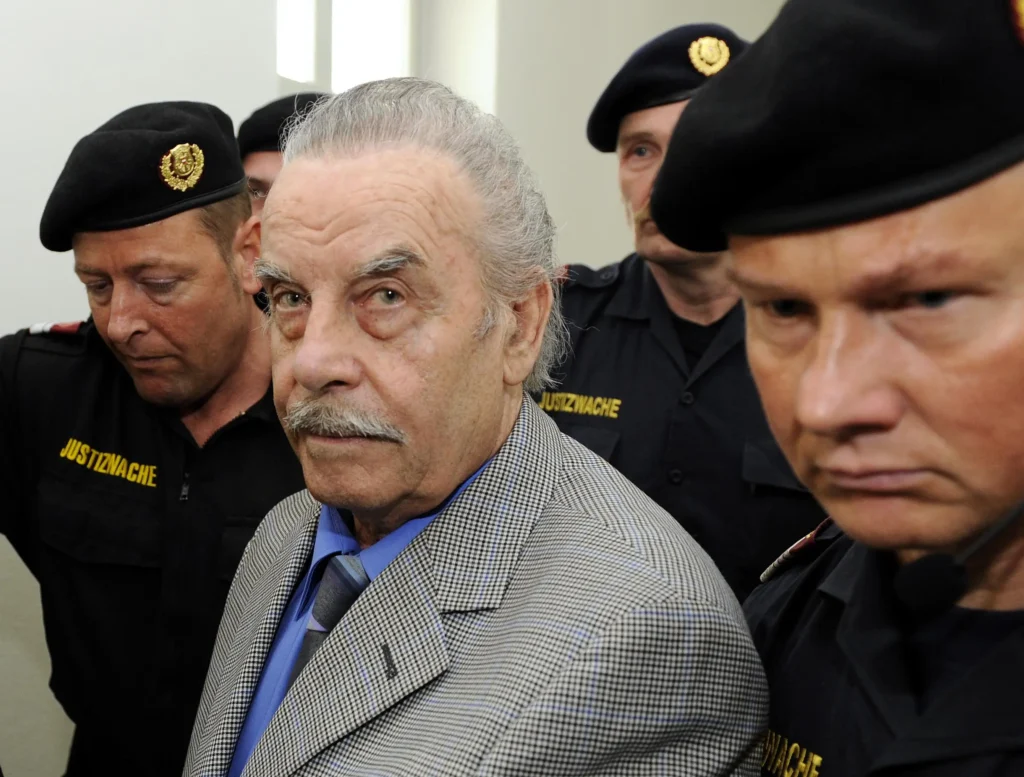
Stefan and Felix was freed. They were in a very bad condition. Fritzl provided vitamins, but they were enslaved in the dungeon. They had infections because of the filth, infested with bacteria etc.
By Sunday the 27th of April, news of Elisabeth’s 24 years of enslavement had spread. The Press began to arrive and the forensic experts entered the cellar.
Following his arrest, Fritzl claimed that his behaviour toward his daughter did not constitute rape, but was consensual. In extracts from talks with his lawyer, Fritzl said that he “always knew during the whole 24 years that what I was doing was not right, that I must have been crazy to do such a thing, yet it became a normal occurrence to lead a second life in the basement of my house.” Regarding his treatment of the family he had with his wife, Fritzl stated, “I am not the beast the media make me to be.”
Regarding his treatment of Elisabeth and her children in the cellar, he explained that he brought flowers for Elisabeth and books and toys for the children into the “bunker”, as he called it, and often watched videos with the children and ate meals with them and Elisabeth. Fritzl stated that his decision to imprison Elisabeth came about after she “did not adhere to any rules any more” when she became a teenager. “That is why I had to do something; I had to create a place where I could keep Elisabeth, by force if necessary, away from the outside world.” He suggested that the emphasis on discipline during the Nazi annexation of Austria, which ended when he was ten years old, might have influenced his views about decency and good behavior. The chief editors of News magazine noted in an editorial that they expected Fritzl’s statement to form the basis of his lawyer’s defense strategy. Critics said his statement may have been a ploy to prepare an insanity defense.
Reflecting on his childhood, Fritzl initially described his mother as “the best woman in the world” and “as strict as it was necessary.” Later, he expressed a negative opinion of his mother and claimed that “she used to beat me, hit me until I was lying in a pool of blood on the floor. It left me feeling totally humiliated and weak. My mother was a servant and she used to work hard all her life, I never had a kiss from her, I was never cuddled although I wanted it – I wanted her to be good to me.” He claimed that she called him “a Satan, a criminal, a no-good”, and that he “had a horrible fear of her.” In 1959, after Fritzl had married and bought his house, his mother moved in with them. Over time, their roles reversed, and his mother came to fear him. Eventually, he also admitted he had later locked his mother in the attic and bricked up her window after telling neighbors that she had died, keeping her locked away until her death in 1980. It is unknown how long Fritzl held his mother captive, but newspapers have speculated that it may have been up to twenty years.
In a report by forensic psychiatrist Adelheid Kastner, Fritzl’s mother is described as unpredictable and abusive. Fritzl referred to himself as an “alibi” child, meaning that his mother only gave birth to him to prove that she was not barren and could produce children. Fritzl claims that his pathological behavior is innate. During his prison sentence for the earlier rape conviction, he admitted that he planned to lock his daughter up so that he could contain and express his “evil side.” He said, “I was born to rape, and I held myself back for a relatively long time. I could have behaved a lot worse than locking up my daughter.” Kastner diagnosed Fritzl as having a “severe combined personality disorder” which included borderline, schizotypal and schizoid types and a sexual disorder, recommending that Fritzl receive psychiatric care for the rest of his life. Later reports have revealed Fritzl’s premeditated plan to lock his daughter up was not for discipline, but for his own gratification.
Elisabeth Fritzl was fighting to survive because of her children and there is a psychological concept, known as Stockholm syndrome.
He was also named as a suspect in a case of attempted rape of a 21-year-old woman and was known for indecent exposure. On 12 November 1986, at 6:40 a.m., 17-year-old Martina Claudia Posch left her home in Vöcklabruck, Upper Austria, to reach a nearby bus stop. On 22 November 1986, two scuba divers found Posch’s body wrapped in two olive green tarpaulins on the southern shore of Lake Mondsee. The forensic examination revealed that Posch had been killed by strangulation two hours after leaving her parents’ home. After his arrest, Fritzl was investigated for possible involvement, since at the time of the murder, he and his wife ran a campground which was located opposite where Posch was found. Posch was also very physically similar to his daughter, Elisabeth. In addition to Posch’s murder, Fritzl was looked into as a suspect in the death of Anna Neumayer, aged 17, who was killed with a captive bolt pistol in a field in Linz on 17 August 1966. She had disappeared on her way to Wels, 35 kilometres from where Fritzl worked at the time. Another potential victim was Gabriela Supeková, aged 42, a prostitute who was murdered in August 2007. Her body was found at the Lipno Reservoir near the Austrian-Czech border, at a time when Fritzl was on holiday there. Fritzl was not charged with these murders due to a lack of evidence.
He stood trial for the murder of the infant Michael, who died shortly after birth, and faced between ten years’ and life imprisonment. Fritzl was also charged with rape, incest, kidnapping, false imprisonment and slavery, which carry a maximum twenty-year term.
The trial of Josef Fritzl began on 16 March 2009, in the city of Sankt Pölten, presided over by Judge Andrea Humer. On the first day, Fritzl entered the courtroom attempting to hide his face from cameras behind a blue folder, which he was entitled to do under Austrian law. After opening statements, all journalists and spectators were asked to leave the courtroom, whereupon Fritzl lowered his folder. Fritzl pleaded guilty to all charges with the exception of murder and grievous assault by threatening to gas his captives if they disobeyed him.
In his opening remarks, Rudolf Mayer, the defending counsel, appealed to the jury to be objective and not be swayed by emotions. He insisted Fritzl was “not a monster,” stating that he had brought a Christmas tree down to his captives in the cellar during the holiday season.
Christiane Burkheiser, prosecuting her first case since being appointed Chief Prosecutor, pressed for life imprisonment in an institution for the criminally insane. She demonstrated for jurors the low height of the ceiling in the cellar dungeon, by making a mark on the door to the courtroom at 174 cm (5 ft 8.5 in) and described the cellar as “damp and moldy,” passing around a box of musty objects taken from the cellar, the odor of which made jurors flinch.
Elisabeth gave videotaped testimony before Austrian prosecutors and investigators on 11 July 2008. On 13 November, authorities released an indictment against Fritzl. Jurors watched eleven hours of testimony recorded by Elisabeth in sessions with police and psychologists in July 2008. The tape is said to have been so “harrowing” that the eight jurors did not watch more than two hours at a time. Four replacement jurors were on standby to replace any of the regular jurors in case they could not bear to hear any more of the evidence. Besides the video testimony, Elisabeth’s older brother Harald testified that he was physically abused by Fritzl as a child. Fritzl’s wife, Rosemarie, and Elisabeth’s children refused to testify.
On 18 March 2009, Elisabeth attended the second day of the criminal trial against her father, in preparation for a book she wrote about her ordeal. She did not plan to see her father again. Fritzl’s attorney confirmed that she had been in the visitors’ gallery in disguise at the time her video testimony was aired. “Josef Fritzl recognised that Elisabeth was in court and, from this point on, you could see Josef Fritzl going pale and he broke down,” Mayer said. “It was a meeting of eyes that changed his mind.” The next day, Fritzl began the proceedings by approaching the judge and changing his pleas to guilty on all charges.
On 19 March 2009, Fritzl was sentenced to life imprisonment without the possibility of parole for fifteen years. He said that he accepted the sentence and would not appeal. Fritzl is currently serving out his sentence in Garsten Abbey, a former monastery in Upper Austria converted into a prison.
Elisabeth and her children are relatively good health, but they are still recovering. They need to adjust to natural light. They also needed treatment to help them cope with all the extra space that they now had in which to move about. All of the children might have genetic problems common to children born of an incestuous relationship.
In September 2021, a decision was made to release Fritzl from a psychiatric detention facility to a regular prison, where he was to continue to serve his life sentence. On 25 January 2024, the Higher Regional Court approved Fritzl’s move to a regular prison, amid reports that he was suffering from dementia. Josef Fritzl, 88-year-old has been granted conditional release from a prison for the mentally ill following appeal. He is not considered dangerous.
